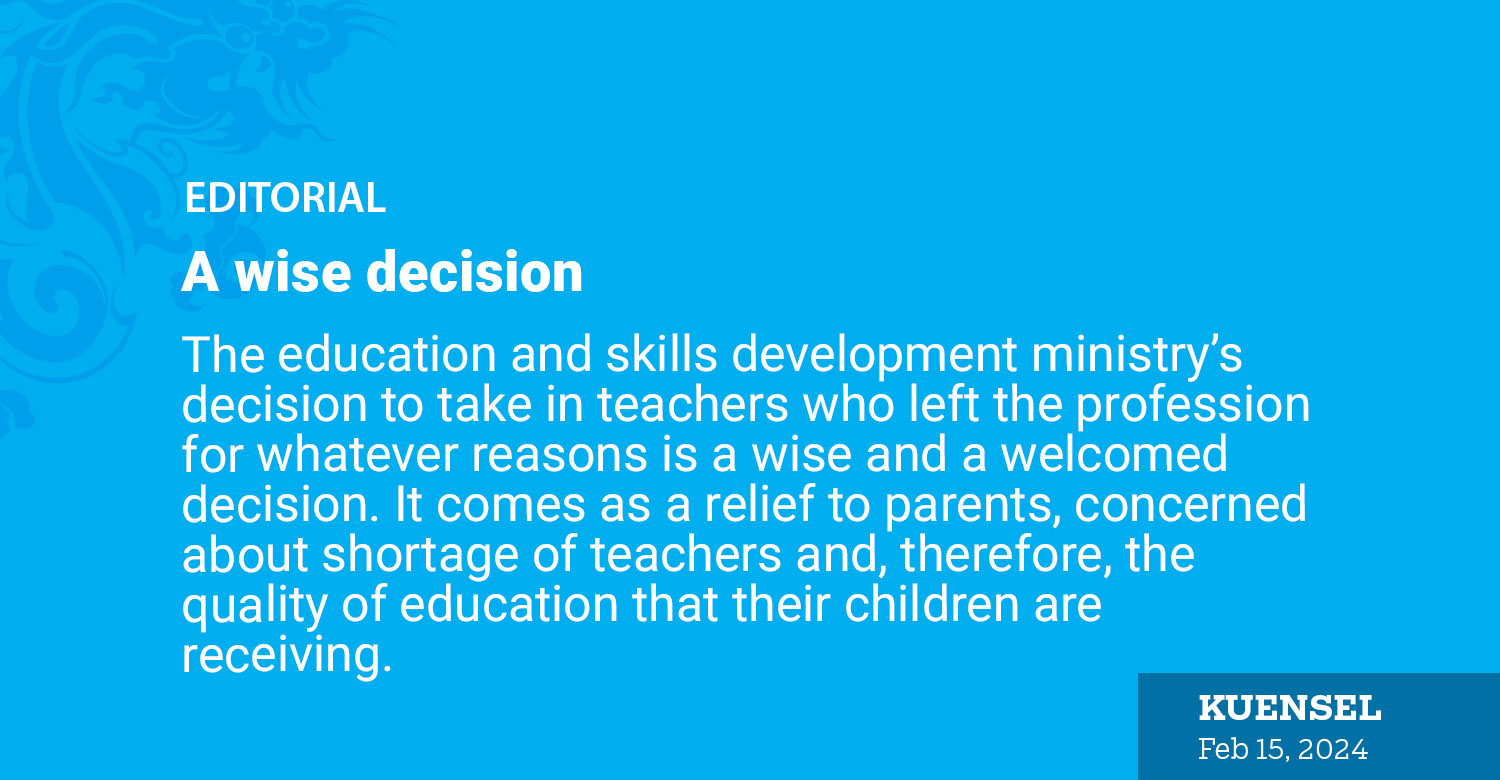The education and skills development ministry’s decision to take in teachers who left the profession for whatever reasons is a wise and a welcomed decision. It comes as a relief to parents, concerned about shortage of teachers and, therefore, the quality of education that their children are receiving.
In the last few years, the country saw an exodus of professionals, especially teachers. The education and health sector required the most robust group of professionals. Replacing thousands of expatriate workers with our own people was lauded as an achievement. Opportunities in Australian affected the dreams of thousands of children; many are too young to understand the repercussions.
Although not openly shared, school management groups notified about shortage of teachers. Students, in some schools, still wonder why their Geography teacher is coming to fill up for the Mathematics class. This was the impact of the exodus.
Teacher’s attrition rate dropped by 0.7 percent, from 478 to 371. This is no consolation. Perhaps, external factors like immigration rules and obligation contributed to the drop. Even one teacher leaving has a huge implications on the education system.
The reason for the huge attrition rate is varied, of course. What we needed was intervention. Talents leaving is the sign of a bad economy. Fixing our economy is more important to address the inherent issues facing us today.
Implication an be far-reaching.
By welcoming teachers who resigned voluntarily to rejoin the profession, we can solve the problem of teacher shortage, but only to a certain stage. It is a win-win situation for teachers and the education system, seen from one perspective. We know that not all Bhutanese who left to seek better opportunities elsewhere are happy with their decision. Some are finding that money is not everything, while others are yearning to come back home.
Like one senior teacher remarked: “A simple job in Bhutan is worth the thousands one can land abroad.”
Many Bhutanese are today missing home, but have no income to repay the huge loans they took to fund their study abroad.
So, looking ahead, ensuring a job they are good at, or solving the teacher shortage by welcoming teachers back is a good decision. An additional benefit is the exposure our teachers have gained while working or studying abroad. They could bring back valuable lessons to improve our education system.
We need to welcome them with open arms and treat them respectfully. That is how we build our human resource.


